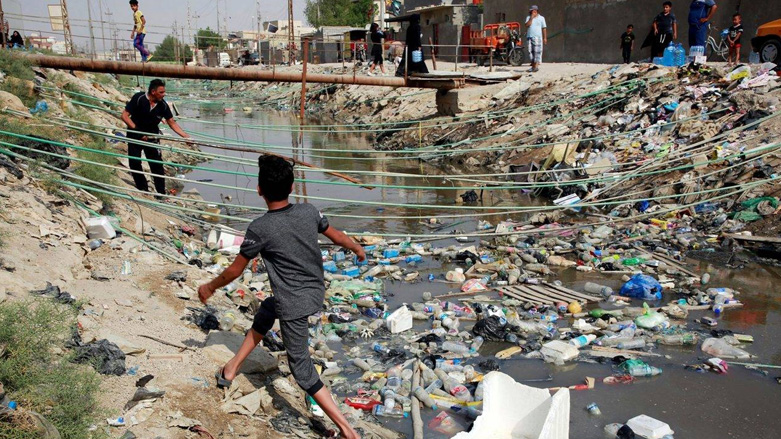Baghdad lawmaker to foreign donors: Don't give to Iraqi government

ERBIL (Kurdistan 24) – The head of the Iraqi parliament's Legal Committee on Friday called on foreign donor countries to refrain from handing any funds to his federal government because of chronic corruption.
“As a lawmaker, on behalf of the Iraqi people, I address the donor countries (especially the Gulf States): Do not hand over Dinars, Dirhams, or Riyals to our government… because they will go to groups of thieves,” Fayiq Sheikh Ali, committee head, posted on his Twitter account.
Ali’s comment came after a senior Saudi Minister heading a high-level delegation to Baghdad on Wednesday pledged that Iraq will receive a US $1 billion loans for reconstruction efforts throughout the country as well as a sports city complex in Baghdad as a gift from Saudi Arabian King Salman bin Abdulaziz.
“The solution is to supervise yourselves to build schools, homes, hospitals, and playgrounds,” Ali added.
He also went further, stating that, should any government donate money to Baghdad, he would “spit” on them.
Iraq has one of the world’s largest oil reserves and is the second-largest oil producer in the Organization of the Petroleum Exporting Countries (OPEC).
The embattled Middle Eastern nation continues to rank high on Transparency International’s list for corruption, fraud, and mismanagement of state institutions, some of the most significant challenges facing the country since the fall of the former regime in 2003.
According to the organization’s 2018 Corruption Index, Iraq ranks 168th, the twelfth most corrupt country out of a total of 180 placements.
Following the Saudi pledge of the loan, prominent Saudi political analyst and journalist Turki al-Hamad described the move as a positive step but also warned of the same point raised by Ali.
“It is beautiful that the Kingdom is giving one billion dollars to Iraq. This is part of the policy of restoring Arab Iraq. But beware of handing over the amount directly to the Iraqi government, it may end up in the Iranian hands, or be swallowed in a black hole of corruption,” Hamad stated on his Twitter account.
Poor quality of basic services and living standards along with low unemployment rates, made worse by institutional corruption, have considerably curtailed the country’s development.
Mass protests began in July in Basra and spread across several southern and central provinces, including the capital of Baghdad. Participants burned down multiple governmental and party offices over the next few months, notable among them Basra’s governorate building and Iranian Consulate.
Organizers decried the low standard of living in the oil-rich province of Basra, the petroleum exports from which account for over 90 percent of the nation’s total revenue, an emblematic illustration of Iraq's wealth not reaching its population.
Though protests slowed in late 2018, they began again in December when crowds began to reiterate their frustrations, continuing to claim that officials were still failing to deliver on promises made during the runup to the last national election in May, stamping out corruption prominent among them.
Editing by John J. Catherine
